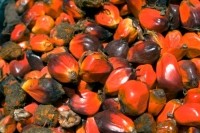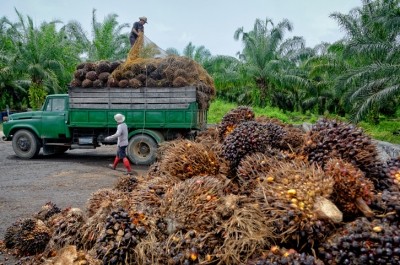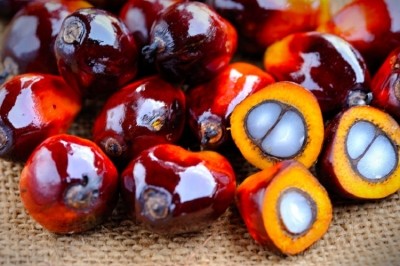Study links EU diet to deforestation footprint in the tropics
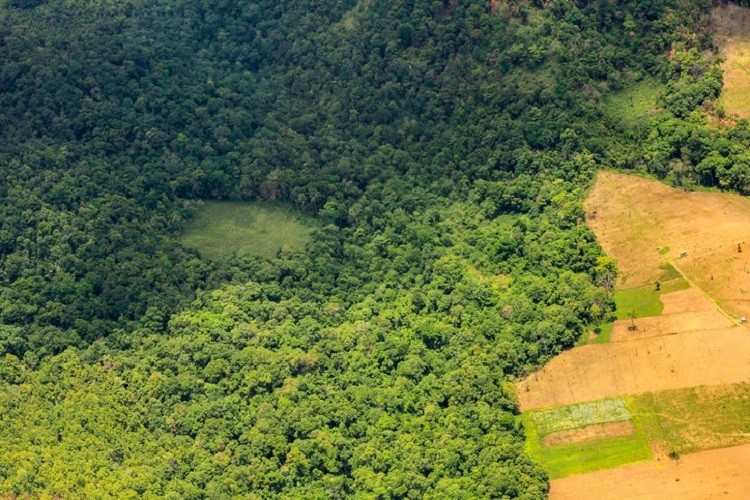
New studies from Chalmers University of Technology in Sweden investigate the extent to which deforestation in the tropics is linked to food production, and where that food is consumed.
The research was conducted in collaboration with scientists from the Stockholm Environment Institute in Sweden; Senckenberg Biodiversity and Climate Research Centre in Germany; and the Norwegian University of Science and Technology.
By leveraging satellite technology, global land use statistics and international trade pattern data, the study concludes that one-sixth of carbon emissions of the typical EU diet is due to deforestation in the tropics.
“We used remote sensing data on forest loss across the tropics,” Chalmers’ Martin Persson, who co-authored the study, told FoodNavigator. Tropical and subtropical regions investigated cover approximately 100 countries in South and Central America, Africa, and Asia Pacific.
“We then linked that [data] to agricultural and forest plantation statistics to correlate – at least on a national level – where deforestation is happening and where cropland and pasture [for agriculture] is expanding.”
From there, the researchers connected their findings to global trade models to determine where commodities from deforested land are consumed. “We can make the full link between the consumption in Europe, for example, and the deforestation that has cost tropical countries,” explained Persson.
Spotlight on Europe
According to the researchers, the figures for the EU – as a major food importer – are of particular interest.
“Europe is one of the regions that imports most of the tropical deforestation [causing commodities] that are linked with national trade,” Persson told this publication.
The main commodities driving deforestation in the tropics are beef and soy production in South America, and palm oil in South East Asia – primarily in Indonesia and Malaysia.
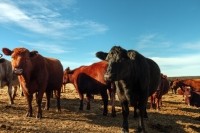
“These are also the commodities most responsible for the deforestation footprint of EU consumption,” Persson added.
Another key finding from the report is that emissions from imports are elevated compared to those emitted from domestic agricultural practices. For a number of Member States, import emissions linked to deforestation are equivalent to more than 50% of the emissions caused by their own national agricultural production.
‘We need to move beyond voluntary regulations’
The EU appears aware of its contribution to deforestation in beef, soy and palm oil producing regions, and earlier this year opened a public consultation towards a ‘EU Communication on Stepping up EU Action against Deforestation and Forest Degradation’.
The questionnaire offered stakeholders the opportunity to identify the main drivers of deforestation and forest degradation, and to indicate policy areas they consider to have the biggest impact in reducing environmental concerns in forests.
While Persson acknowledged the European Commission’s work to date, he suggested that stricter action may be required to truly implement change in the sector.
“The one [point] that many have been making, is that if we’re really going to make an impact in terms of reducing deforestation, we need to move beyond voluntary regulation.
“If it’s not voluntary, but legally binding, then there should be enforcement and consequences if you don’t live up to what the legislation says.
“But [in terms of] how exactly one makes that happen? There needs to be a process to discuss that.”
A stricter alternative could be to follow the Commission’s stance on the marketing of illegal timber in the EU.
Current regulations, which were implemented in 2013, prohibit illegally harvested timber to be placed on the EU market. In addition, EU traders who place timber products on the EU market are required to exercise due diligence.
All 28 Member States are responsible for laying down effective, proportionate and dissuasive penalties to enforce this law.
This timber regulation “puts demands on producers that want to sell timber to European markets to make sure it is not illegally logged,” said Persson, suggesting that a similar model could be implemented to govern the agricultural commodity trade.
“We could think about that. There are similar ways to make sure that the agriculture commodities we import have not contributed to deforestation.”
Holding industry accountable: 'There hasn't been much action'
Food and beverage manufacturers in Europe are also implementing initiatives aimed at limiting deforestation and forest degradation in origin countries around the world.
Indeed, a number of the big players have committed to stop buying commodities from deforested lands in what Persson described as a “groundswell of zero deforestation pledges”.
But is that enough? And who holds these companies accountable? “Many of them have set a 2020 deadline, but so far quite little has happened in terms of implementation. There hasn’t been much action,” said Persson, citing a recent Forest 500 report: “As the 2020 deadline approaches, not one of the Forest 500 companies and financial institutions assessed in 2018 is on track to eliminate commodity-driven deforestation from their supply chains and portfolios by next year.”
There is a need for renewed action on the issue, said Persson. “The best is if regulators and industry can go hand-in-hand.”
Source: Global Environmental Change
‘Agricultural and forestry trade drives large share of tropical deforestation emissions’
Published online ahead of print: 20 March 2019
DOI: https://doi.org/10.1016/j.gloenvcha.2019.03.002
Authors: Florence Pendrill, U. Martin Persson, Javier Godar, Thomas Kastner, Daniel Moran, Sarah Schmidt, Richard Wood
